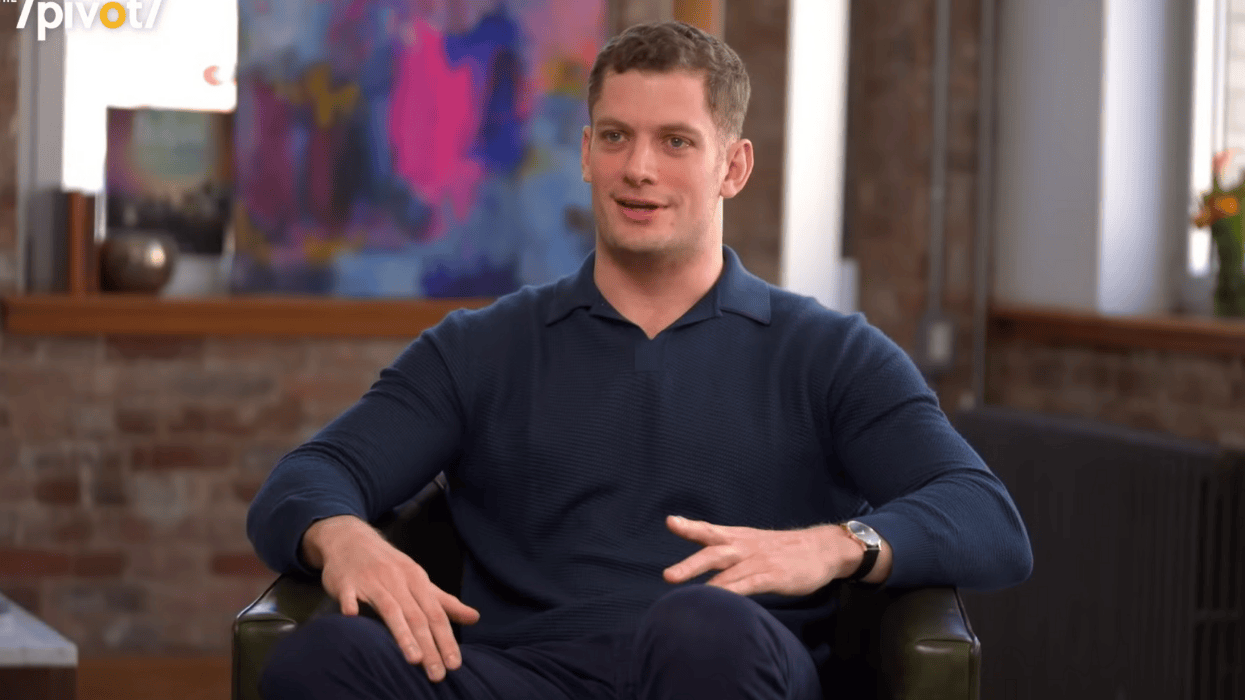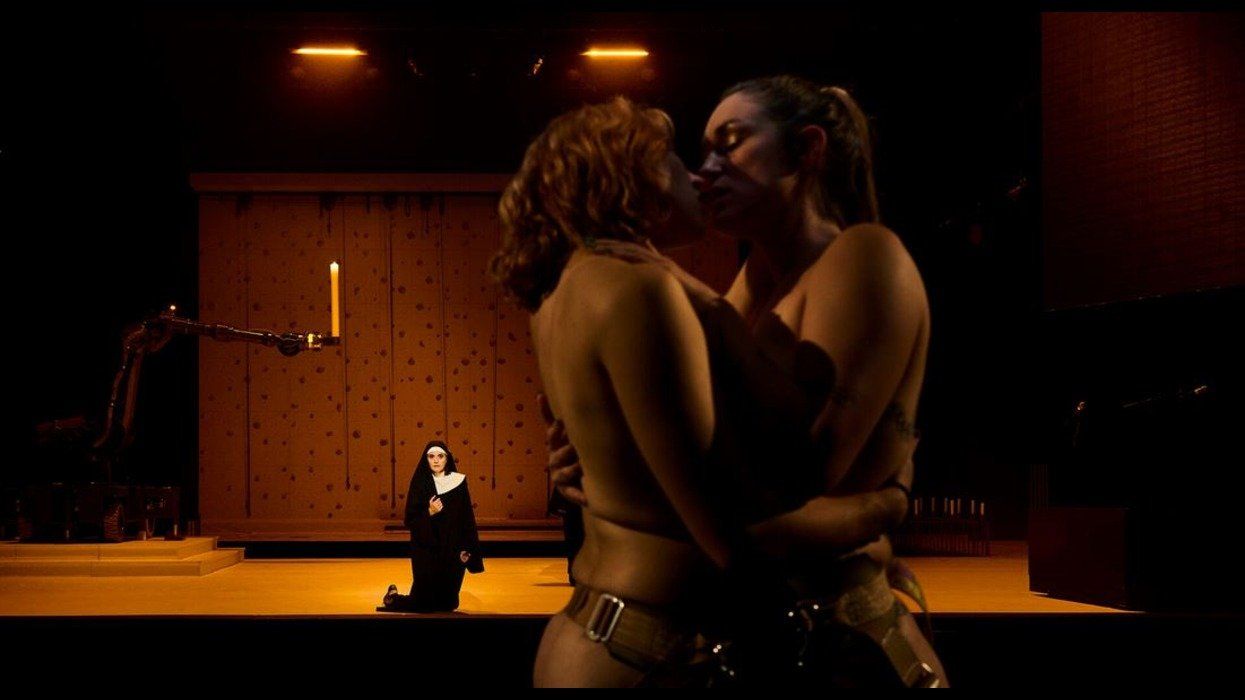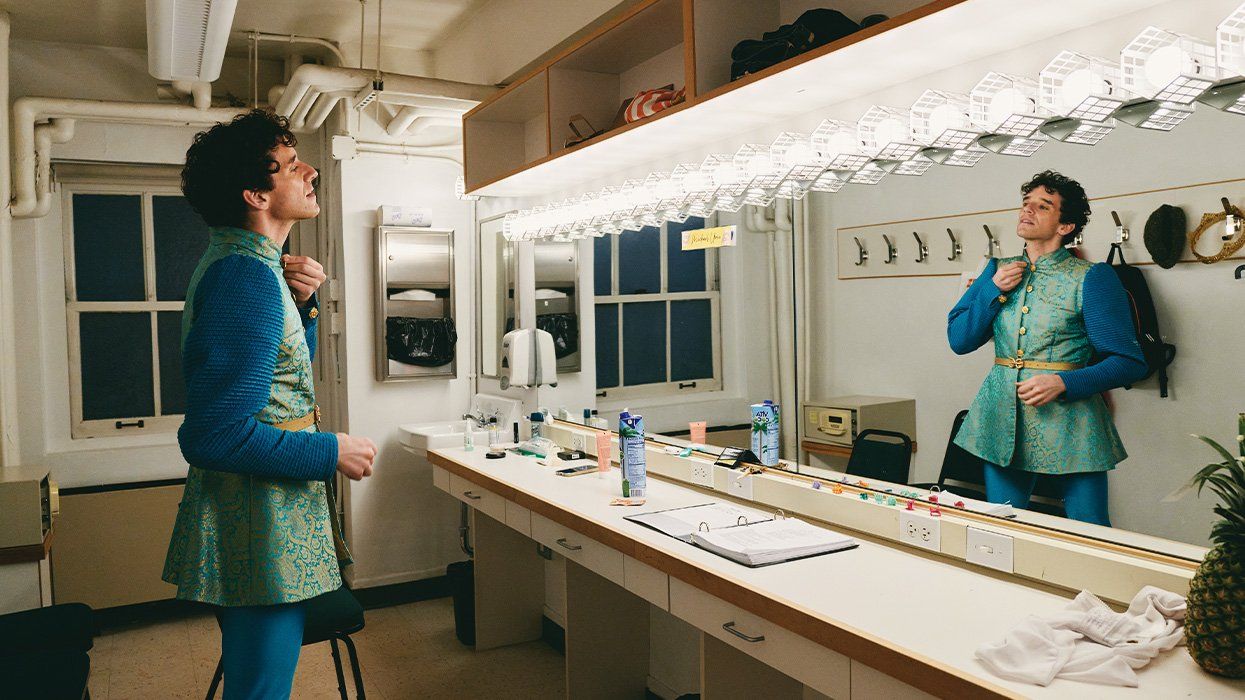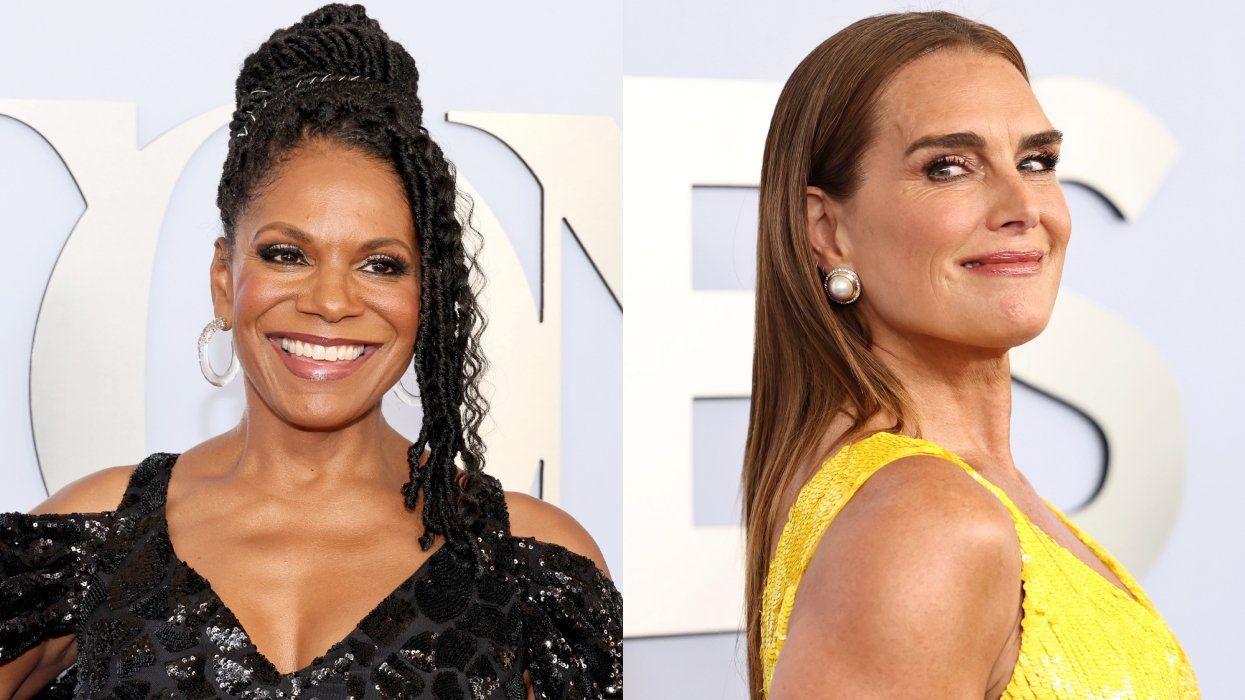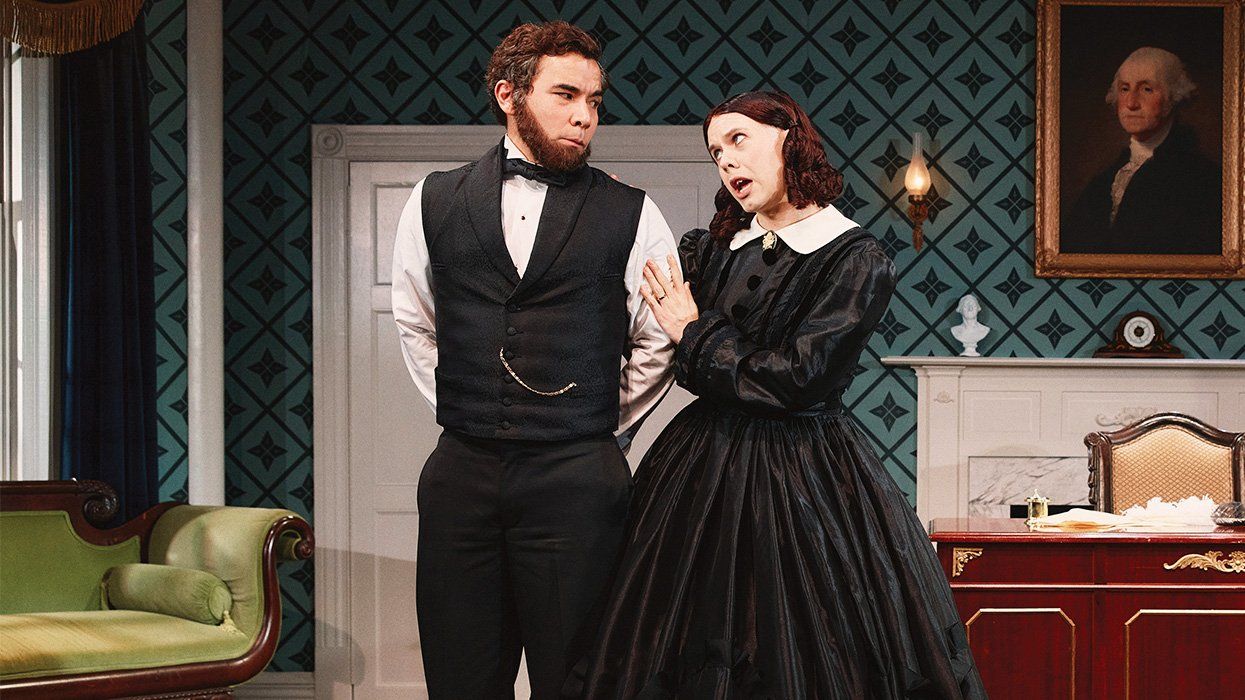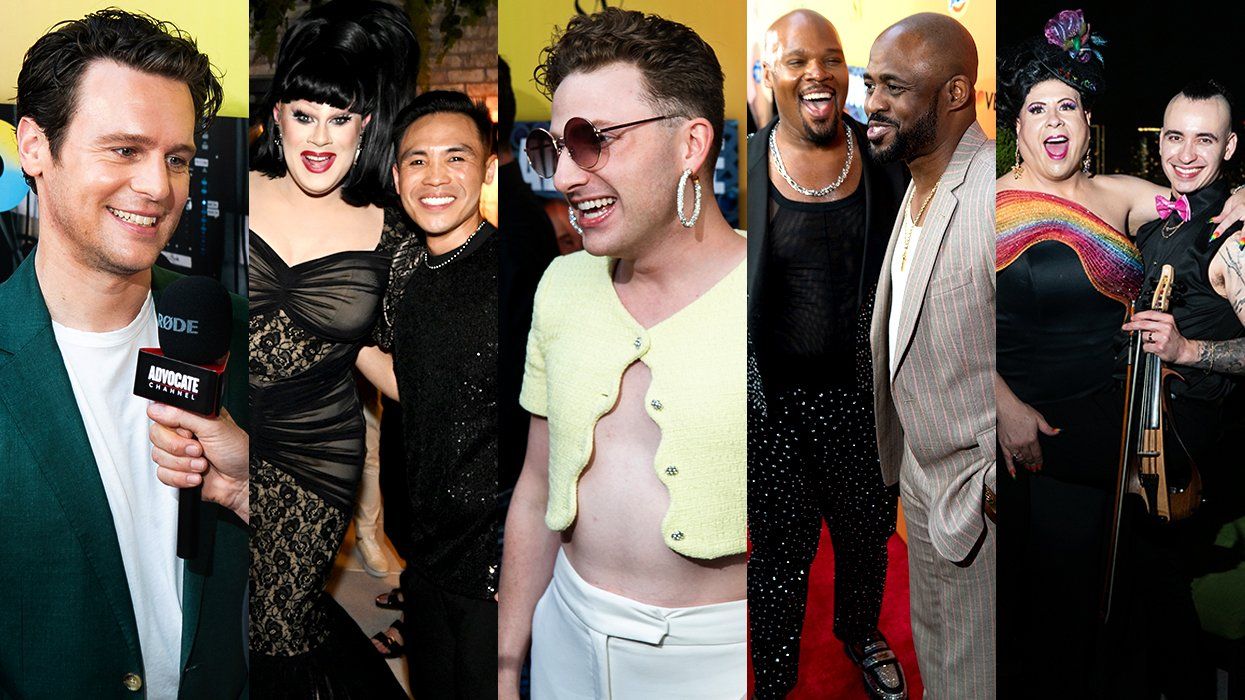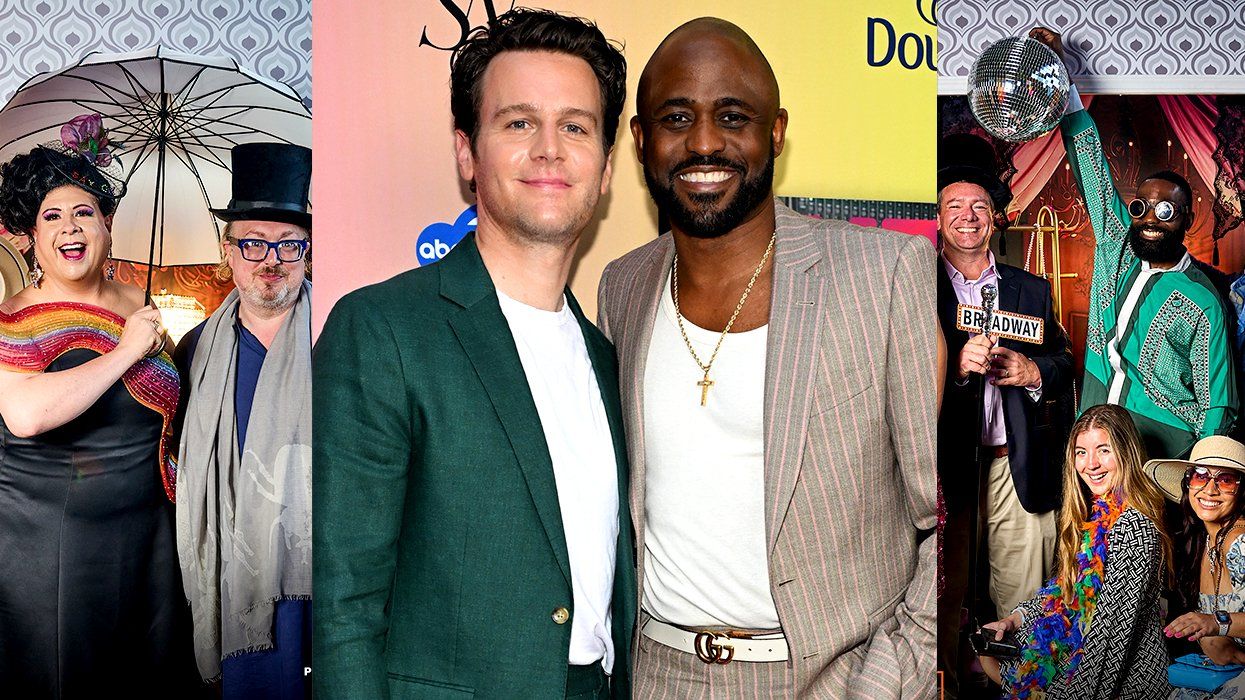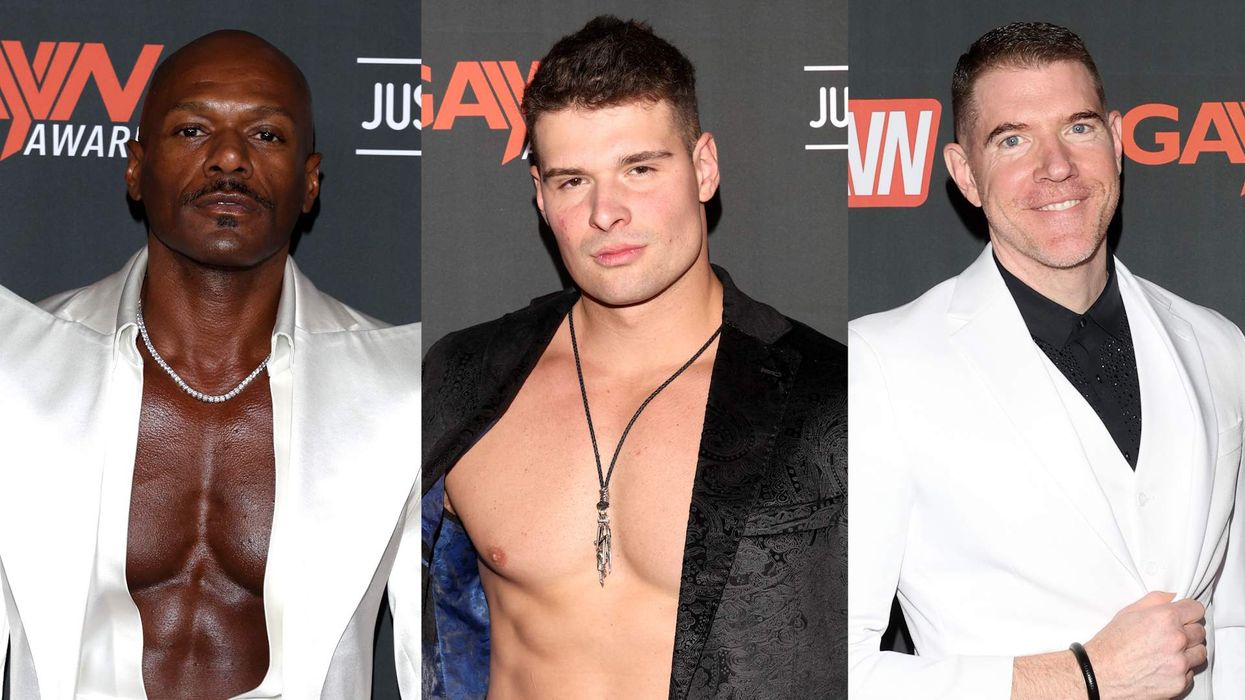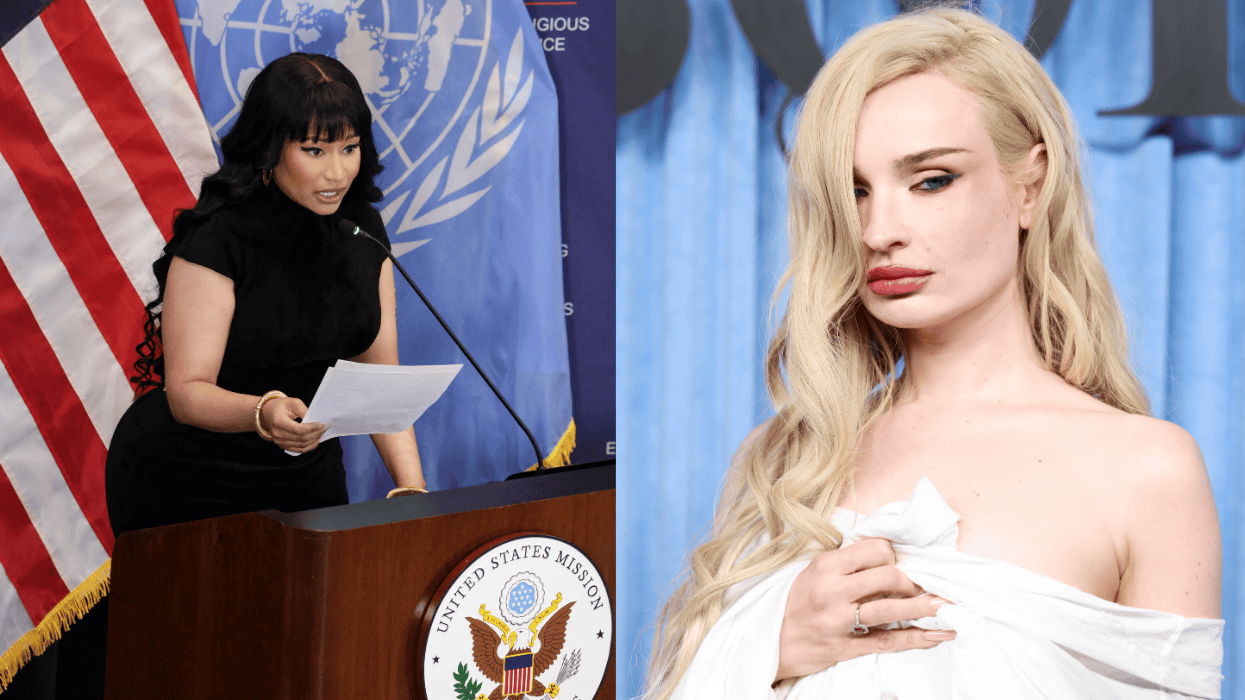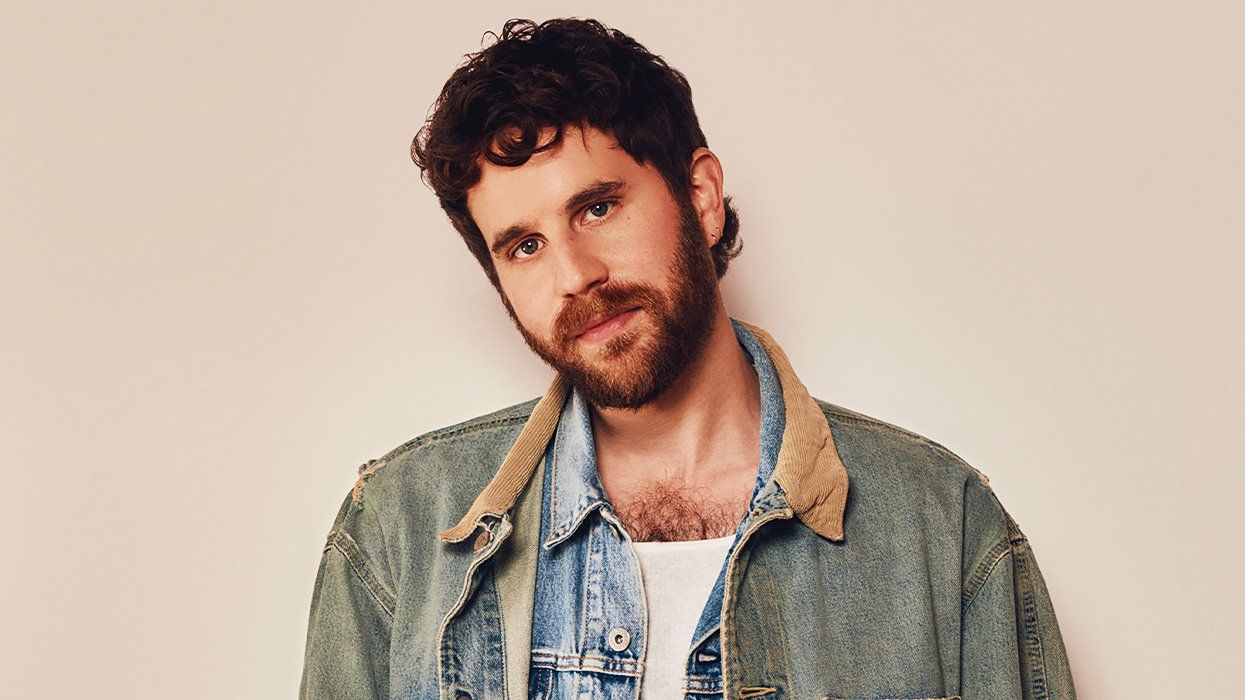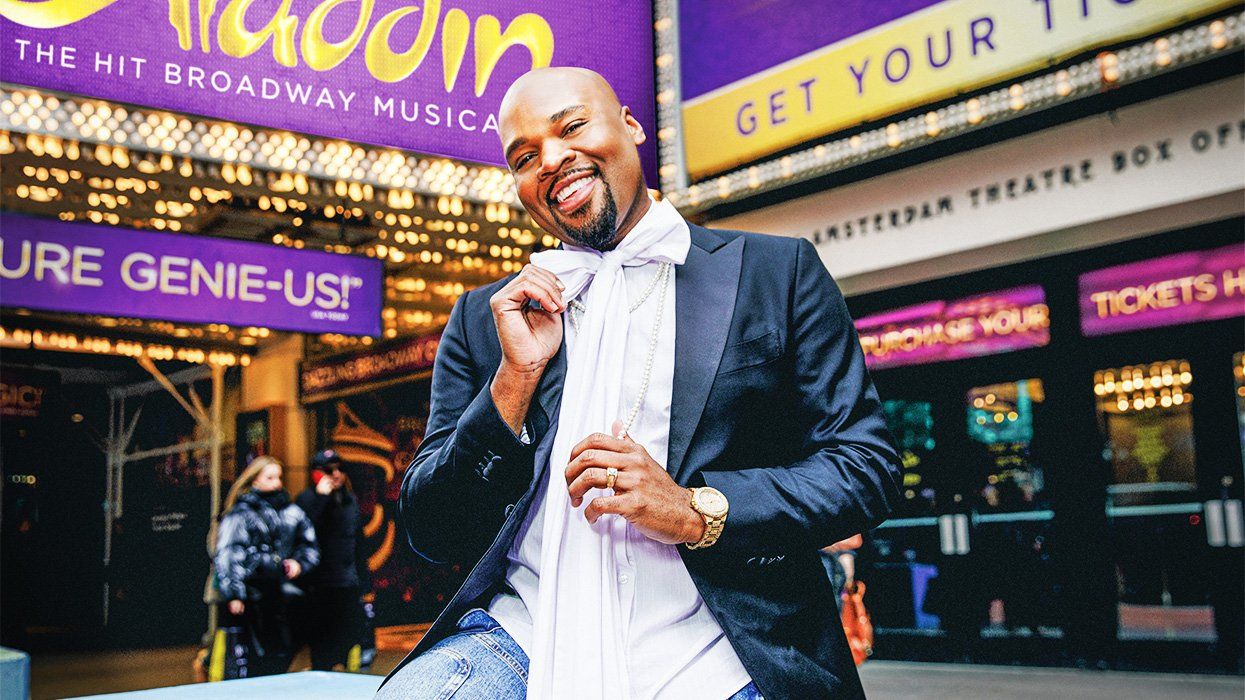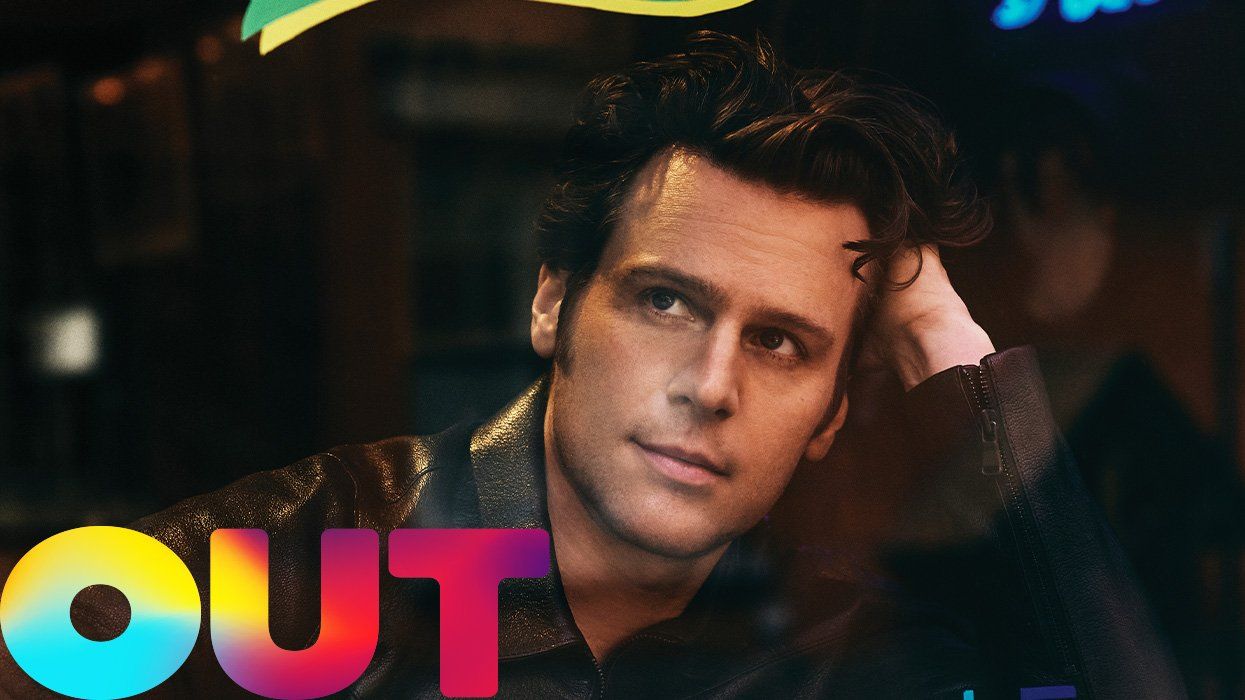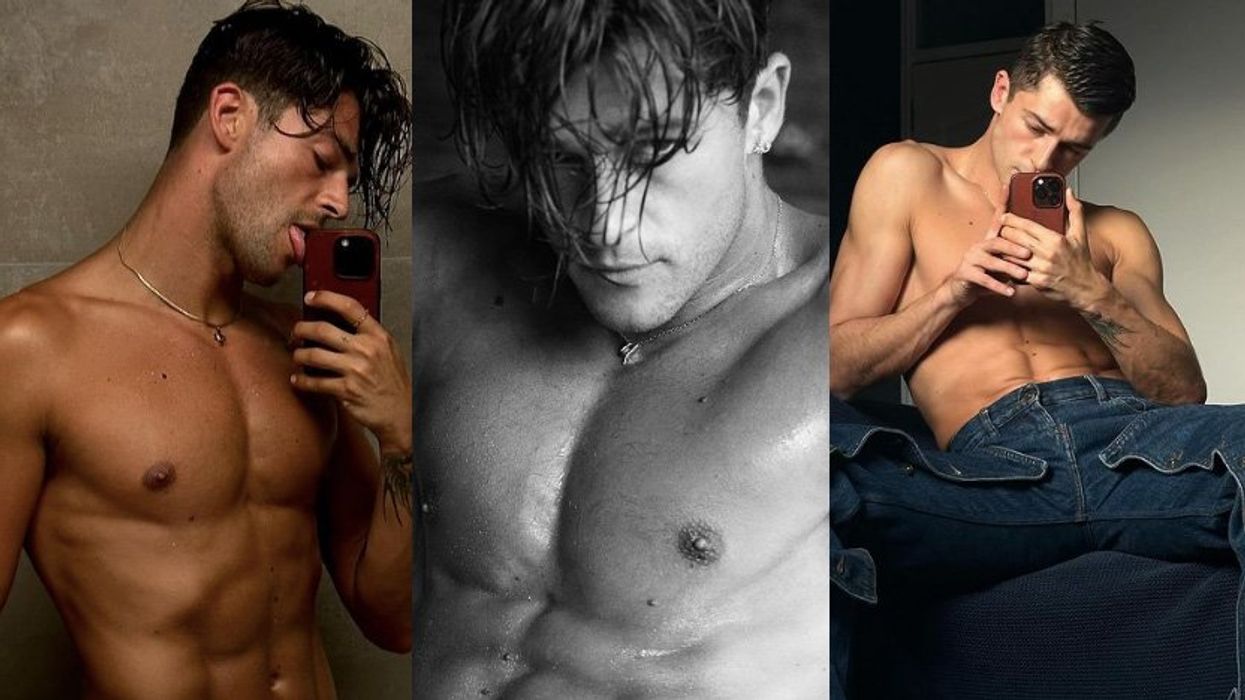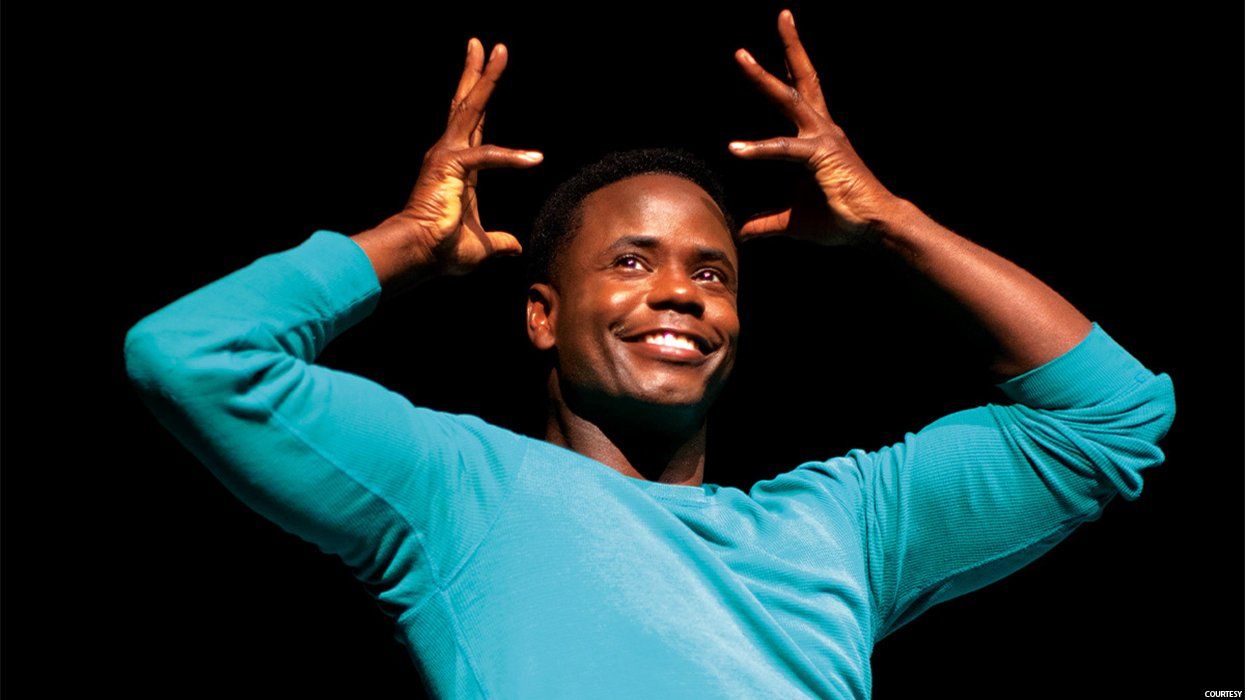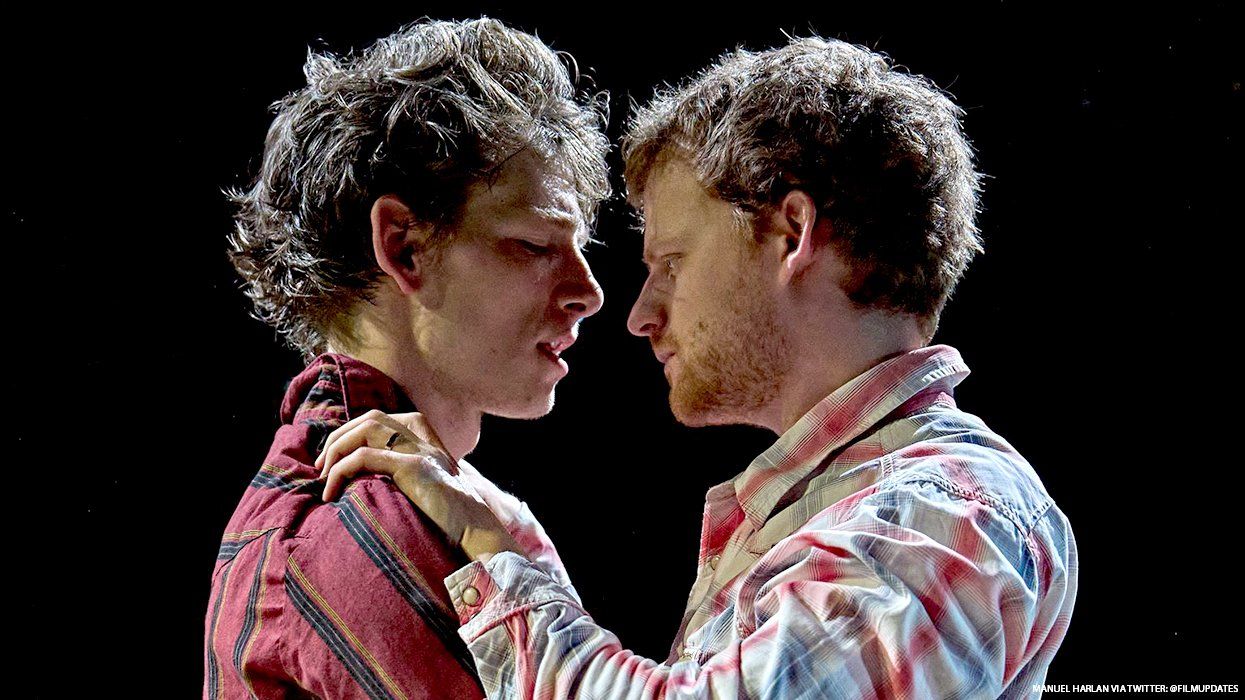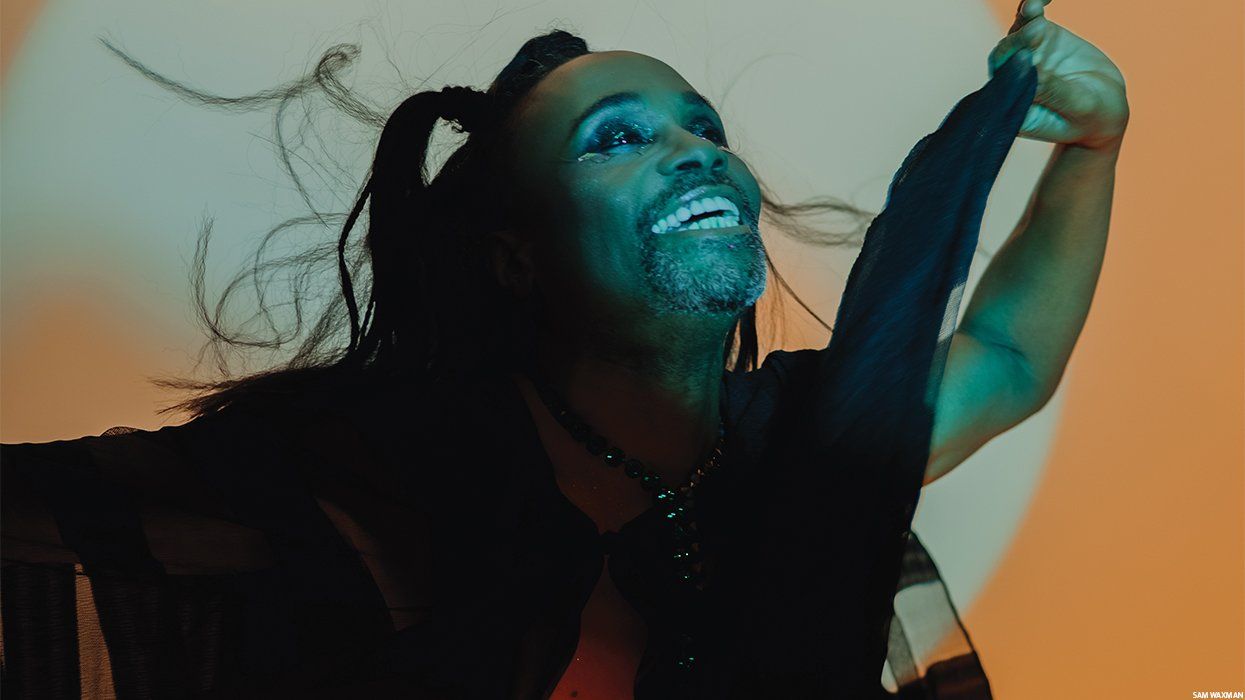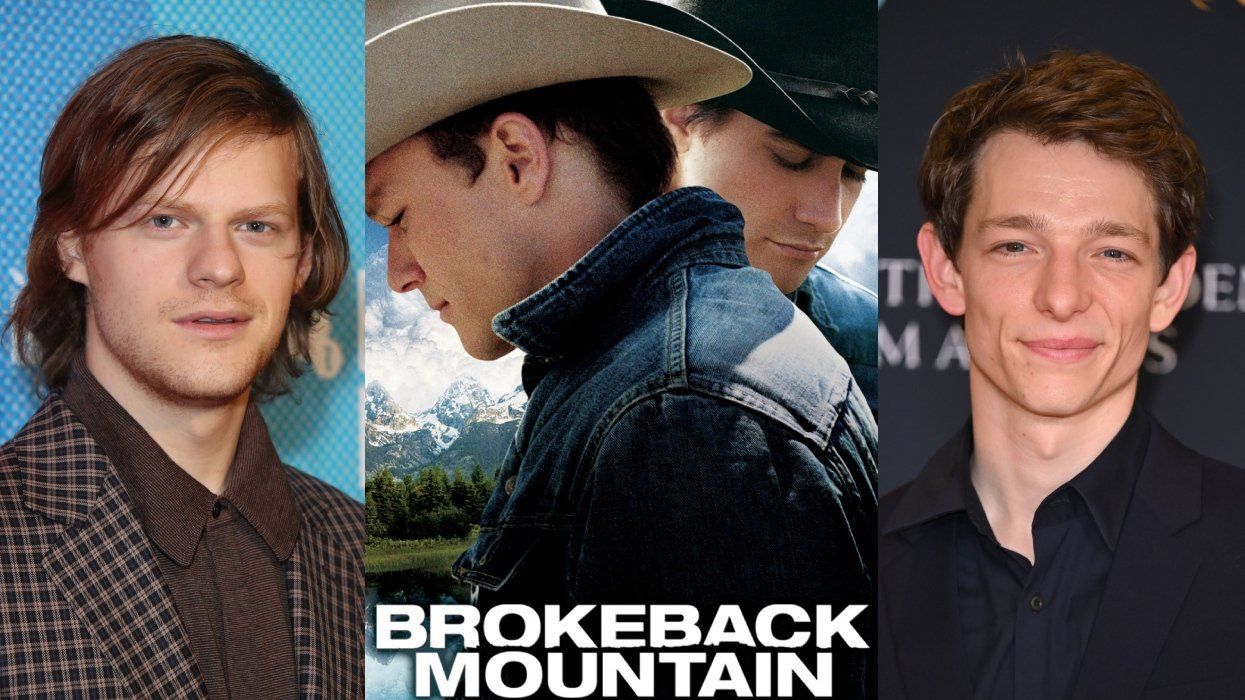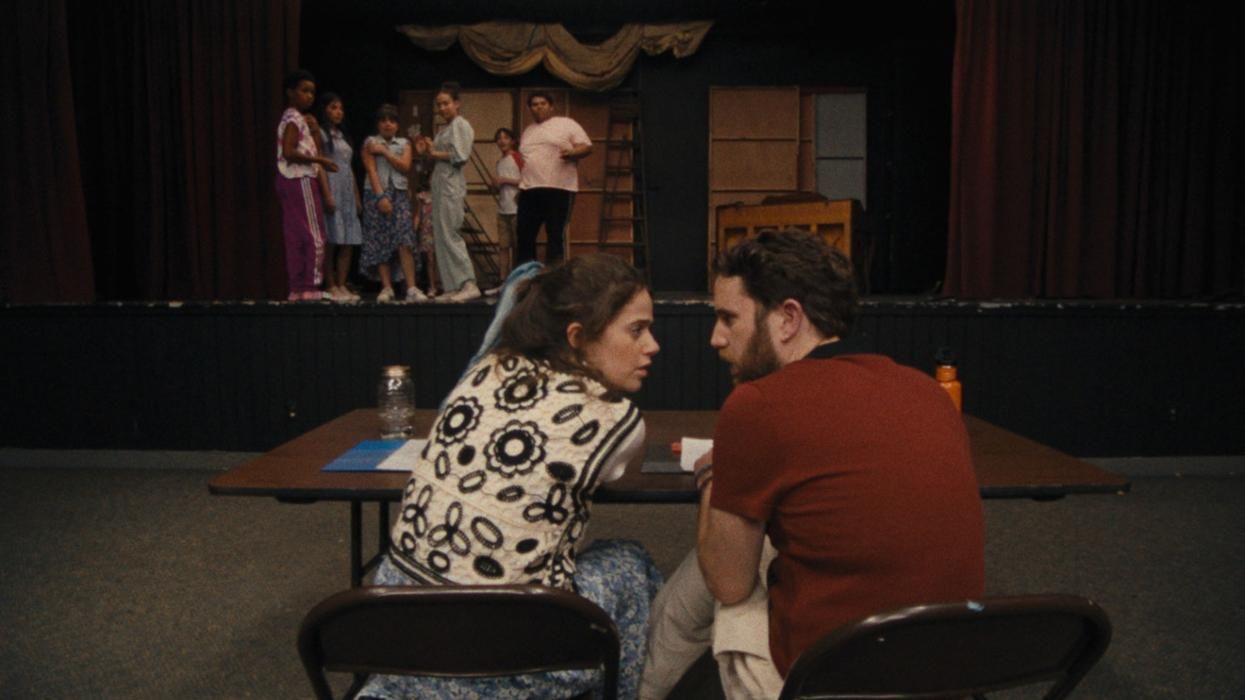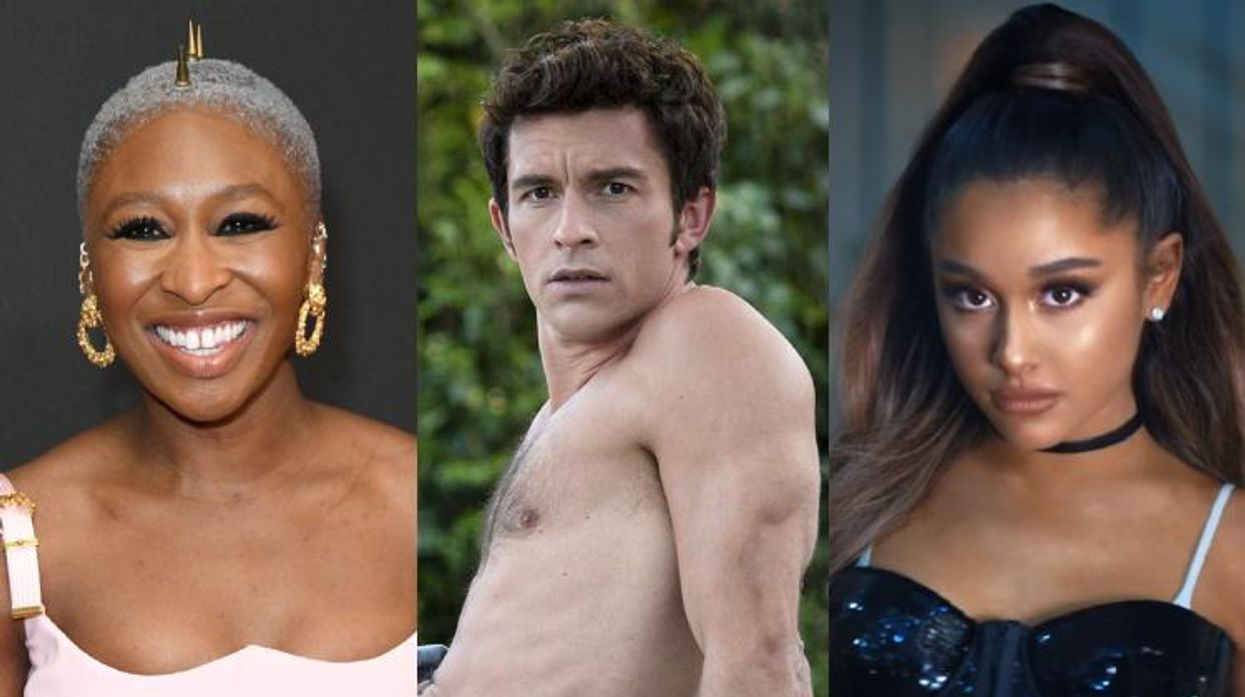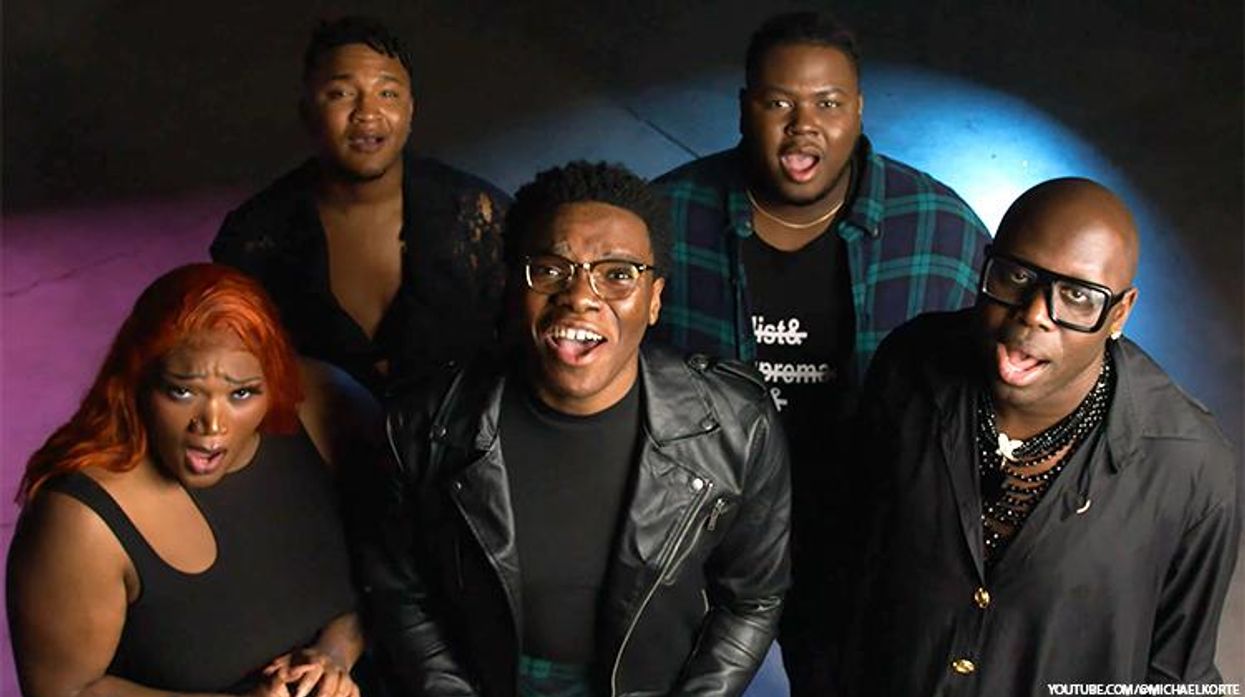Photography by Kareem Black. Styling by Stephanie Tricola at Judy Casey. Groomer: Joanna Pensinger at Exclusive Artists Management using SK-II. Shirt, tuxedo, and bow tie by Tom Ford.
In 1992, the satirical revue Forbidden Broadway spoofed William Finn and James Lapine's acclaimed musical Falsettos with a parody titled "Marketing Falsettos," a chuckle at the challenge of selling a tuner about the AIDS crisis to the blue-haired Broadway crowd. For the show's producers, however, this was no laughing matter. Falsettos had enjoyed successful runs off-Broadway as two separate one-acts, 1981's March of the Falsettos and 1990's Falsettoland, and the '90s were becoming the era of important gay plays, with works like Angels in America and Jeffrey. But queer story lines, particularly in mainstream theater, were still a risky proposition. Despite rave reviews, an ardent following, and two Tony Awards, Falsettos shuttered at a financial loss after a valiant year-plus stint on Broadway.
Now, as the musical returns to the Great White Way a quarter of a century later, LGBT culture dominates. Even right-wing attacks are essentially a reactionary reflection of an unprecedented queer visibility. The big question looms: Is it time to bring back Falsettos, or is the show dated?
Its casting certainly feels fresh. Two-time Tony winner Christian Borle and Andrew Rannells (who's played queer in HBO's Girls and NBC's The New Normal) are set to make a dynamic Marvin, the young Jewish father who leaves his wife for a man, and Whizzer, that man, who then gets sick with AIDS. The pairing marks a departure from the past, when traditional leading men were employed to compensate for the overt queerness of shows (including, arguably, Falsettos). At the 1984 Tonys, when George Hearn won for playing a drag queen in La Cage aux Folles, he performed its song "I Am What I Am" contradictorily out of drag.
The product of another generation, Rannells is glad to be cast again in a gay role. "There are so many different stories in our community," he says. "I could play a gay person the rest of my career. That's not limiting to me."
Of his straight co-star, Rannells admits to having "a real chip on my shoulder about straight actors playing gay." But, he adds, "Christian as Marvin is totally fine. He's such a huge talent, and there's no fear because he gets it and is part of our community, an ally with a capital A."
Borle balks at labels and is a staunch believer in actors keeping their personal lives private -- or at least keeping his own private. "In a way I'd rather be an actor that people don't know," he says, "because the job is to convince you that I'm this other person."
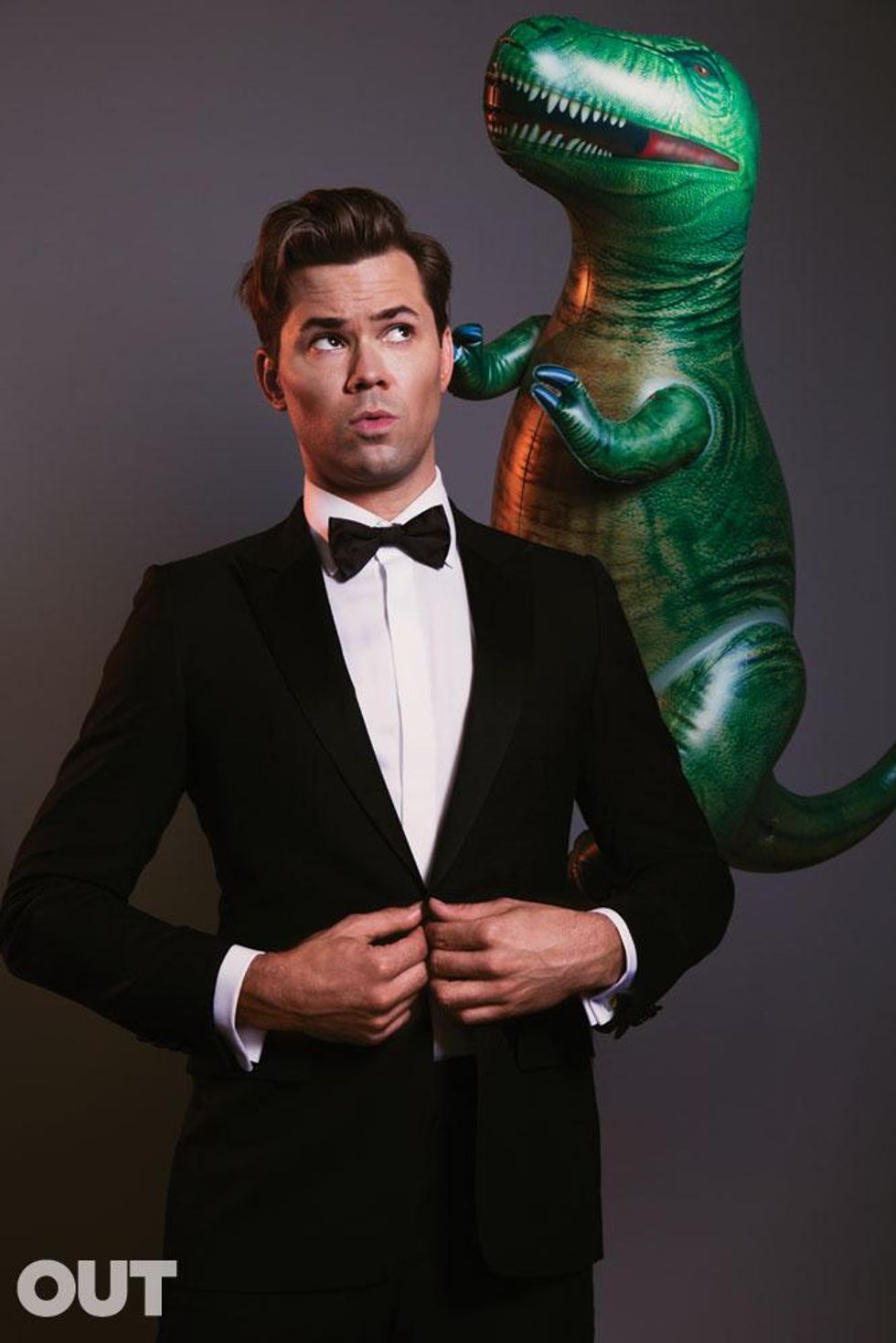
It's a marked difference from Michael Rupert, the original Marvin, who identified as bisexual to the press while promoting Falsettos. Whether Rupert was or is, there have certainly been many gay actors for whom "bi was a kind of purgatory, an in-between transitional step," says Borle. "But even the classifications of sexuality are, what, in the thousands now? There's a much more fluid spectrum, and within that, who's to say? For example, I've been straight all my life. What happens when I fall madly in love with Andrew Rannells?"
Gone, too, are the parameters of the 1992 production, which would seem rather chaste by today's standards. "Christian and I just made out for the dance break," says Rannells. "We're going to have the latitude to explore this physical relationship. We're both sort of tactile people."
But if audiences can expect some flesh, they should also anticipate an unsanitized, very real depiction of a gay relationship -- not, as Borle puts it, "a gay fairy tale or some kind of wonderland where everything will be fine and 'We're people too!' "
Whizzer, for example, is hardly innocent. "He isn't a hustler, but he's trying to get what he wants," says Rannells, who plays the character. "I've always thought of him as a seducer. There's gotta be something about him to make Marvin leave his wife."
We've seen Rannells embody this type before, whether it's Elijah scheming to bag a sugar daddy on Girls or Elder Price praying to Heavenly Father for a mission to Orlando in Broadway's The Book of Mormon. His flair for channeling brazen ambition should serve him well in his portrayal of Whizzer, who in the first act of Falsettos sings, "Nothing is everything to me, except sex and money."
Act Two forces Whizzer to face his mortality, as he falls ill with an expediently terminal, yet-to-be-named disease. Rannells has proved himself the man for both aspects of the role, with his tender performance in the Broadway production of Hedwig and the Angry Inch in 2014. The sympathetic quality he exhibited then will be essential in conveying the emotional arc of Falsettos, which depends largely on the audience's investment in Whizzer within his and Marvin's non-nuclear family.
AIDS may have a name now, but it certainly has no cure. Rannells worries that "there's a complacency about the epidemic because of all the medical advances and PrEP," and he hopes to remind audiences that once upon a time, it wasn't as simple as taking a pill.
Lapine, who has returned to direct the new production, remembers witnessing the early stages of the plague when March of the Falsettos opened in 1981.
"A friend of mine brought an infectious-diseases doctor to the show," he says. "I asked him, 'What is this gay cancer thing I'm reading about?' Ten years later we knew we had to write a second act about it. It's very hard to explain to people what that time was like, particularly in the theater, where we lost so many, and in New York. It was really, deeply scary. The stigmatization of it all was just awful. I'm glad to be revisiting that, in a way."
Perhaps the moment for a Falsettos revival has come. Although Ronald Reagan remained silent while AIDS ravaged entire communities, Finn, the musical's composer and lyricist, says he "looks like a statesman" compared to Donald Trump. With so much at stake in the world right now, this show may be more urgent than ever.
Falsettos opens October 27 at the Walter Kerr Theatre in New York.
Like what you see here? Subscribe and be the first to receive the latest issue of Out. Subscribe to print here and receive a complimentary digital subscription.




